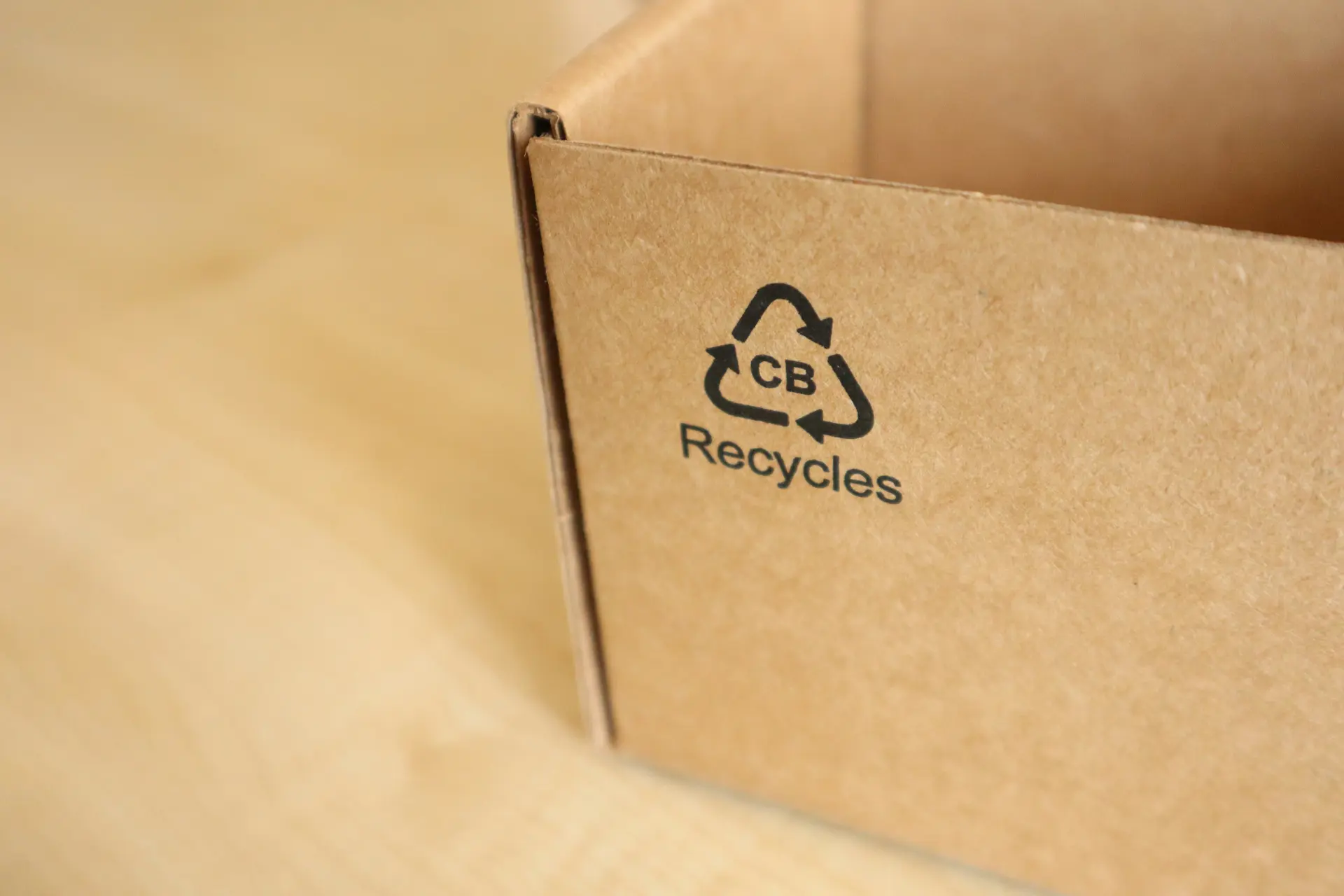Introduction to EPR in Scotland
Sustainability has become one of the defining challenges of our time, and packaging is at the centre of the debate. Consumers are demanding greener choices, governments are tightening legislation, and businesses are under pressure to adapt quickly. Among the most significant regulatory changes facing companies across the UK is Extended Producer Responsibility (EPR).
EPR is a game-changer for packaging compliance. Instead of local councils and taxpayers bearing the financial cost of packaging waste, the responsibility is shifting firmly onto producers. That means businesses that manufacture, import, or sell packaged goods will face both financial and operational obligations to ensure packaging waste is collected, sorted, and recycled responsibly.
Scotland, in particular, has been proactive in its environmental strategy. Alongside the UK-wide EPR rollout, it has considered additional measures such as the Deposit Return Scheme (DRS). However, with multiple delays and shifting deadlines, many businesses are left uncertain about what is required now and what is coming next.
This article explores the current state of EPR in Scotland, the key implications for businesses, and the practical steps organisations should take to prepare. We also show how 4Pack’s compliance management software can help businesses stay on top of these fast-moving changes.
What Is Extended Producer Responsibility (EPR)?
Extended Producer Responsibility is a regulatory framework designed to ensure that businesses take responsibility for the environmental impact of their packaging. At its core, EPR shifts costs and accountability from public authorities to the producers who put packaging onto the market.
This includes:
- Design obligations: Encouraging the use of recyclable, reusable, or compostable materials.
- Financial contributions: Covering the costs of collection, recycling, and waste management.
- Reporting responsibilities: Providing accurate and transparent data on the amount and type of packaging used.
The principle is simple but powerful. Those who profit from packaging must also pay for its environmental impact.
Why EPR Matters for Businesses in Scotland
EPR matters because it represents a fundamental shift in accountability. For the first time, businesses are not only expected to reduce packaging waste but are also financially liable for the systems required to deal with it.
- Costs: Producers face eco-modulated fees, meaning charges vary depending on the recyclability of materials. Using greener packaging can reduce fees, while non-recyclable or hard-to-manage packaging incurs higher costs.
- Compliance risks: Non-compliance can lead to fines, delays, and reputational damage.
- Innovation opportunity: On the positive side, EPR incentivises businesses to redesign packaging, explore innovative materials, and embed sustainability into brand values.
For businesses in Scotland, where environmental leadership is often more ambitious than in other parts of the UK, the stakes are particularly high.
EPR in Scotland: The Current State of Play
Scotland’s Packaging Waste Challenges
Scotland produces over two million tonnes of packaging waste annually, much of which still goes to landfill or incineration. While recycling rates for glass and paper have improved, plastics and composite materials remain problematic.
The Scottish Government recognises that without systemic change, recycling targets and net-zero ambitions will be impossible to achieve. EPR is designed to address this challenge by making producers accountable for both the volume and the type of packaging they place on the market.
The Legislative Framework
Scotland is part of the UK-wide EPR scheme, which means producers must comply with UK regulations. However, Scotland has also pursued additional waste reduction initiatives, such as the Deposit Return Scheme (DRS) for drinks containers. Although DRS has been delayed until at least 2025, it demonstrates Scotland’s willingness to push for more ambitious change.
EPR sits within Scotland’s broader circular economy strategy, which aims to reduce waste, conserve resources, and drive green innovation. This means businesses operating in Scotland may face stricter oversight and higher expectations than in other regions.
Key Stakeholders
The successful implementation of EPR relies on multiple stakeholders:
- Government: The Scottish Government, alongside UK regulators, sets the rules and monitors compliance.
- Businesses: Producers, importers, and retailers are directly responsible for funding and reporting.
- Local authorities: Councils manage collection and recycling infrastructure, funded by producer payments.
- Consumers: Ultimately, recycling rates depend on public participation and behaviour.
For businesses, navigating this network of responsibilities requires accurate data, transparent systems, and strong collaboration.
The Timeline: Where Are We Now?
Original Deadlines and Postponements
EPR was initially due to roll out in 2024, with producers expected to begin full compliance this year. However, a series of delays has pushed implementation back to 2025. The delays reflect industry readiness concerns, gaps in waste management infrastructure, and political changes.
Despite these setbacks, producers are already required to collect and submit detailed packaging data. This is a critical first step in preparing for full EPR obligations.
Scotland vs. the Rest of the UK
While Scotland remains aligned with the UK-wide EPR timeline, it has also pursued unique policies, such as DRS. Businesses operating across the UK will need to ensure consistency while remaining aware of potential regional differences in enforcement or ambition.
What Businesses Need to Know About Compliance
Financial Responsibilities
Under EPR, producers will fund the entire cost of managing packaging waste, from collection to disposal. Fees will be calculated based on the weight and recyclability of packaging materials, incentivising sustainable design.
For example:
- A recyclable PET bottle may attract a lower fee.
- A multi-layer pouch with limited recyclability will incur higher costs.
Operational Impacts
Compliance extends beyond paying fees. Businesses must:
- Track and report packaging data across multiple products.
- Ensure accuracy in labelling, weights, and material specifications.
- Demonstrate traceability from design to end-of-life.
This requires a cultural shift towards integrated, data-driven compliance.
Risks of Non-Compliance
The consequences of failing to comply include:
- Fines and penalties from regulators.
- Reputational harm, as consumers increasingly demand sustainable practices.
- Supply chain disruption, particularly if partners demand proof of compliance.
Practical Steps for Businesses Preparing for EPR in Scotland
Building a Compliance-Ready Culture
EPR compliance is not just the responsibility of the sustainability team. Procurement, operations, marketing, and finance must all be aligned. Businesses should:
- Train teams on EPR requirements.
- Embed sustainability into procurement and design processes.
- Appoint compliance champions to oversee accountability.
Data & Reporting: The Core Challenge
The most significant challenge is managing packaging data. Regulators demand granular, auditable records covering every piece of packaging placed on the market.
Common pitfalls include:
- Inconsistent data sources such as spreadsheets, supplier emails, or outdated systems.
- Missing or inaccurate information on packaging specifications.
- Lack of audit trails to prove compliance.
Technology & Tools to Support Compliance
To overcome these challenges, businesses must embrace digital solutions that centralise, automate, and streamline compliance. This is where 4Pack’s software makes a difference, providing:
- A single repository for packaging specifications.
- Automated workflows for compliance processes.
- Audit-ready traceability across the packaging lifecycle.
- Integration with ERP and PLM systems for seamless data exchange.
How 4Pack Supports Businesses with EPR Compliance
4Pack is designed specifically to help businesses simplify and future-proof packaging compliance.
Centralised Product Data Management
Our platform provides a single, accessible repository for packaging specifications and compliance documents. This eliminates the risk of fragmented systems and ensures every team works from the same source of truth.
Compliance Workflows
Step-by-step workflows guide teams through the compliance process, ensuring accuracy and consistency. Manual errors are reduced, and reporting becomes streamlined.
Regulatory Intelligence & Updates
EPR legislation is evolving rapidly. 4Pack provides real-time updates and intelligence so businesses can adapt quickly, avoiding surprises and reducing risk.
Integration Capabilities
Our solution integrates with your existing ERP and PLM systems, meaning compliance becomes a seamless part of your business processes rather than an added burden.
Audit & Traceability
Every decision and packaging change is tracked. This full traceability ensures you are always audit-ready and able to demonstrate compliance transparently.
Book a Demo: Future-Proof Your Compliance with 4Pack
Preparing for EPR in Scotland does not have to be overwhelming. With 4Pack, you gain a powerful, centralised solution that takes the stress out of compliance.
Book a demo today to see how 4Pack can help your business:
- Reduce the risk of non-compliance.
- Save time and resources by streamlining data management.
- Stay ahead of regulatory changes in Scotland, the UK, and beyond.
- Build a stronger, sustainability-led packaging strategy.
Do not wait until deadlines arrive. Act now to future-proof your compliance and give your business a competitive advantage.
Looking Ahead: The Future of EPR in Scotland
EPR will continue to evolve, with regulators refining fee structures and data requirements. Businesses should expect:
- More frequent reporting obligations.
- Stricter eco-modulated fees to incentivise recyclability.
- Greater pressure on producers to reduce single-use plastics.
Long-Term Impacts on Business
EPR will shape the future of packaging. Companies will increasingly design packaging with end-of-life in mind, balancing cost, sustainability, and compliance. This will drive innovation in materials, labelling, and reusability.
Scotland’s Role in Leading Change
Scotland has positioned itself as a leader in the circular economy. Its approach to EPR and wider sustainability legislation could set the tone for the UK as a whole. Businesses that adapt early will not only avoid penalties but will also gain reputational and market benefits.
Summary
EPR in Scotland represents a step-change in packaging responsibility. While delays have created uncertainty, the direction of travel is clear. Producers will shoulder greater financial and operational accountability for packaging waste.
For businesses, the message is simple. Do not wait until regulations are fully enforced. Start building compliance systems now, embed sustainability into packaging design, and leverage digital tools to streamline data management.
With 4Pack’s end-to-end compliance solution, you can simplify EPR preparation, reduce risks, and focus on delivering high-quality, sustainable products to market.
Scotland is moving towards a circular economy, and the businesses that act now will lead the way.



